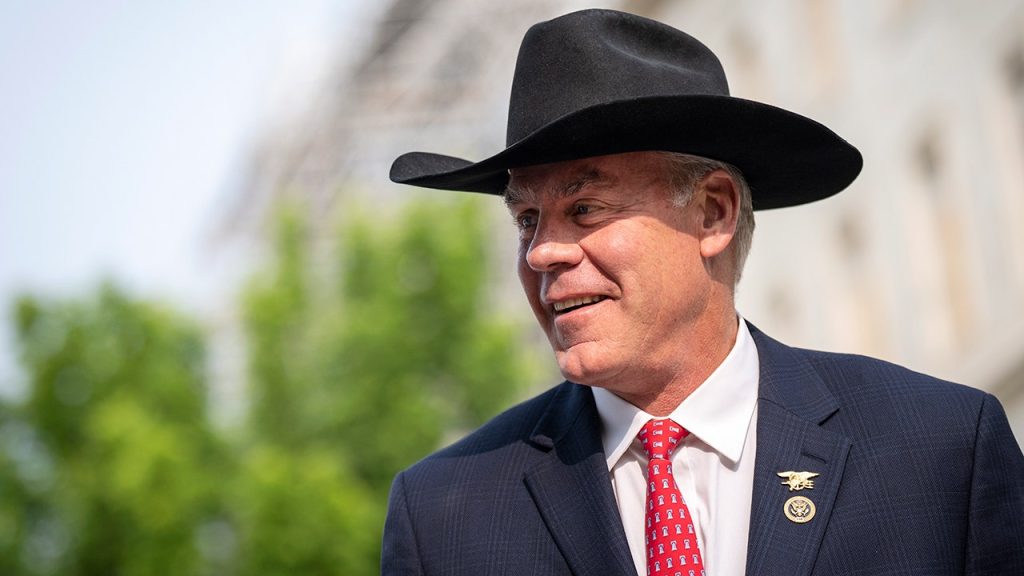A Watershed Moment: Reflecting on Political Violence After Charlie Kirk’s Assassination
In a deeply troubling development that has shaken the American political landscape, Rep. Ryan Zinke (R-Mont.) has characterized the assassination of conservative activist Charlie Kirk as a “watershed moment” for the nation. Speaking on NewsNation’s “The Hill,” Zinke emphasized that Americans should be able to engage in political discourse without resorting to violence. He echoed Utah Governor Spencer Cox’s sentiment that this tragedy represents a critical juncture that demands national reflection on how we handle political disagreements. “This is, you know, as the governor pointed out, a watershed moment. So, the watershed moment depends on what this country does,” Zinke stated, raising the profound question: “Are we going to continue this? Are we going to continue to not be able to have dialogue and talk to your neighbor?”
The assassination has sent shockwaves through the political community and beyond. Kirk, just 31 years old and the co-founder of Turning Point USA, was fatally shot on the campus of Utah Valley University on Wednesday. The alleged gunman, 22-year-old Tyler Robinson, later surrendered to authorities after his family convinced him to turn himself in following a multi-day manhunt. The senseless nature of this attack has prompted calls for unity from across the political spectrum, with Governor Cox delivering an emotional plea during a news conference on Friday. “This is our moment: Do we escalate, or do we find an off-ramp? It’s a choice,” Cox stated, urging Americans to “step away from political frustrations and choose a different path.” In a poignant reflection, Cox added, “For the last 48 hours, I have been as angry as I have ever been, as sad as I have ever been… and as anger pushed me to the brink, it was actually Charlie’s words that pushed me back. Charlie said, ‘When people stop talking, that’s when you get violence.'”
The tragedy surrounding Kirk’s death is particularly haunting given the nature of his work and message. As Zinke pointed out, “Ironically, his assassination was over his message, which was, ‘Let’s have a dialogue. Let’s talk.'” Kirk, described by Zinke as “a father, a great patriot, a loving husband,” was killed for advocating the very civility that might have prevented such violence. Turning Point USA has announced plans for a massive public memorial service at an Arizona football stadium, underscoring the impact Kirk had on many conservatives and highlighting the collective grief being experienced by his supporters. Vigils have been held across the United States as people come together to mourn his loss and contemplate its broader implications for American democracy.
This assassination does not exist in isolation but rather represents part of a disturbing pattern of political violence that has emerged in recent years. Zinke referenced other tragic incidents, including the killing of former Minnesota House Speaker Melissa Hortman, a Democrat, along with her husband Mark and their dog in Minneapolis. The same perpetrator, Vance Boelter, also allegedly shot Minnesota state Sen. John Hoffman and his wife, and attempted to shoot their daughter. These acts of violence have transcended party lines, with President Donald Trump surviving assassination attempts last year and Paul Pelosi, husband of Democratic Rep. Nancy Pelosi, being brutally attacked with a hammer in 2022. The congressman expressed disappointment at social media reactions to these events, describing some of the statements he has seen as “disheartening” in their failure to recognize the gravity of political violence regardless of who is targeted.
The fundamental principle at stake is one that should unite all Americans regardless of political affiliation: that disagreement, however passionate, should never lead to violence. “In our country, the strength is that, you know, we may agree or disagree, but disagreement should never result in violence,” Zinke emphasized during his interview. This sentiment strikes at the heart of democratic values, which depend on the ability to engage in robust but peaceful debate. The assassination of Charlie Kirk represents not just a personal tragedy for his family, friends, and supporters, but a challenge to the nation’s commitment to civil discourse. It raises uncomfortable questions about the increasingly heated rhetoric in American politics and whether we as a society have created an environment where political differences are increasingly seen as justifications for extreme actions.
As the nation grapples with this tragedy, the path forward remains uncertain. Will this indeed be the “watershed moment” that Zinke and Cox suggest—a turning point that prompts Americans to recommit to peaceful dialogue even amid profound disagreement? Or will it further entrench divisions and escalate tensions? The answer depends not just on political leaders but on ordinary citizens and their willingness to engage with those who hold different views in a spirit of mutual respect. Charlie Kirk’s legacy, beyond his political activism, may ultimately be found in his recognition that continued dialogue, however difficult, is essential to preventing violence. As Americans mourn his loss and contemplate its meaning, perhaps the most fitting tribute would be a renewed commitment to the principle that in a democracy, words—not violence—should be our tools for addressing differences and shaping our shared future.


